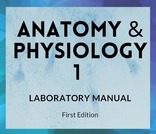
Laboratory manual for undergraduate Anatomy & Physiology 1
- Subject:
- Anatomy/Physiology
- Biology
- Health, Medicine and Nursing
- Material Type:
- Activity/Lab
- Reading
- Teaching/Learning Strategy
- Textbook
- Author:
- Julie Robinson
- Date Added:
- 06/05/2021

Laboratory manual for undergraduate Anatomy & Physiology 1
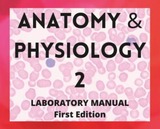
Laboratory manual for undergraduate Anatomy & Physiology 2
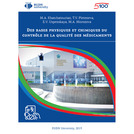
Le manuel est un résumé des principales activités du cours de conférences sur la chimie physique et colloïdale (en 2 parties) et constitue la base théorique des méthodes de contrôle de la qualité des médicaments et vise à acquérir les connaissances et les compétences nécessaires pour travailler dans ce domaine. Destiné aux étudiants francophones étrangers.
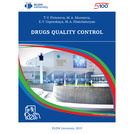
The Course book presents the basics of drugs quality control in accordance with regulatory documents (pharmacopoeia of Europe, USA, Japan, Russia) and new data from current scientific periodicals, monographs The features of the physical, spectral and chemical quality control of medicines according to the indicators «identification», «tests» and «assay» are described in detail. Part II presents a workbook, which includes questions for the self-control of the material studied and tasks for a laboratory workshop. The Course book contains reference material and samples of pharmacopoeial articles. The Course book is designed for students of the specialty «Pharmacy».
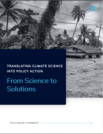
The impact of climate change is far-reaching, touching every aspect of society—from food security and public health to economic stability and environmental integrity. As the challenges mount, the role of informed and decisive policymaking becomes increasingly critical. Yet, translating complex scientific findings into actionable policies remains a significant hurdle for many decision-makers and stakeholders.Inside, you will find a wealth of resources, including case studies that highlight successful policy initiatives, infographics that illustrate key concepts, and policy manuals to support your advocacy efforts. Interactive features, such as embedded videos and toolkits, ensure that this policymaker's handbook is not only informative but also engaging and actionable.
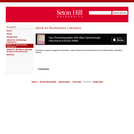
This ebook contains background information, video tutorials and virtual exercises for the Biochemistry Laboratory module. Gas chromatography (GC) and mass spectrometry (MS) are analysis methods that require a lot of background information and intense theory. This interactive ebook will help you understand the information behind these analysis methods, and is accessible through iTunes.

This textbook is designed for instructional laboratories of undergraduate general microbiology courses. Basic microbiological laboratory approaches are emphasized, as well as the diversity of microbes. Morphologies, physiologies, methods of microbial isolation, identification, and characterization are explored. The manual includes an unknown identification project with instructions for writing a scientific report detailing the project and its results.
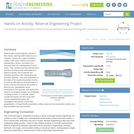
Student pairs reverse engineer objects of their choice, learning what it takes to be an engineer. Groups each make a proposal, create a team work contract, use tools to disassemble a device, and sketch and document their full understanding of how it works. They compile what they learned into a manual and write-up that summarizes the object's purpose, bill of materials and operation procedure with orthographic and isometric sketches. Then they apply some of the steps of the engineering design process to come up with ideas for how the product or device could be improved for the benefit of the end user, manufacturer and/or environment. They describe and sketch their ideas for re-imagined designs (no prototyping or testing is done). To conclude, teams compile full reports and then recap their reverse engineering projects and investigation discoveries in brief class presentations. A PowerPoint(TM) presentation, written report and oral presentation rubrics, and peer evaluation form are provided.
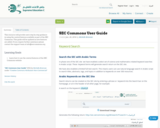
This resource will provide users step by step guidance in using the central features available as part of the SEC Commons. This guide will be updated as new features are added.
If you require further assistance please contact the support team at info@oercommons.org

Part of a mini-series on stress, this short video includes various important aspects of stress including physiological, mental, familial and developmental Some mention of coping skills and burnout present. More videos to come soon.